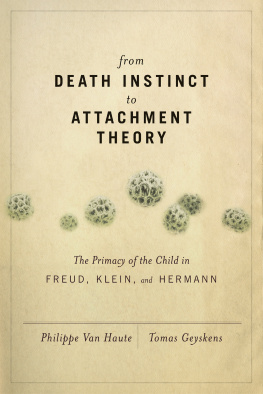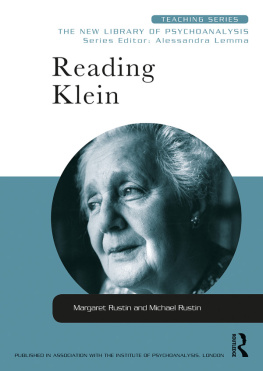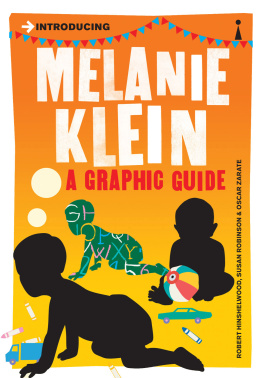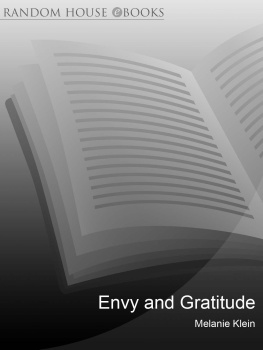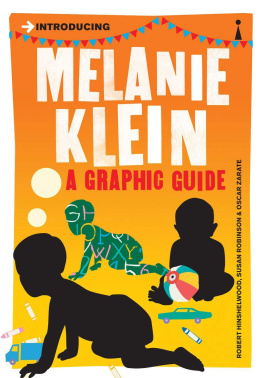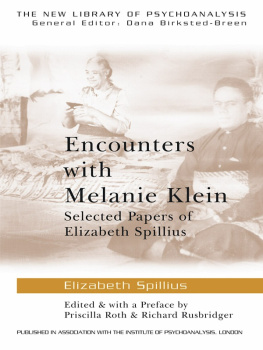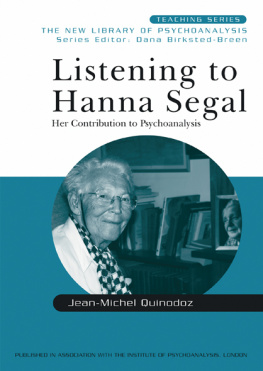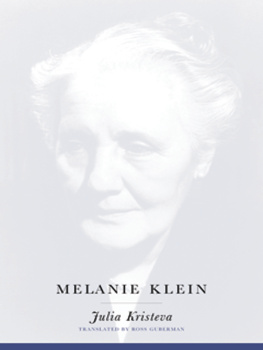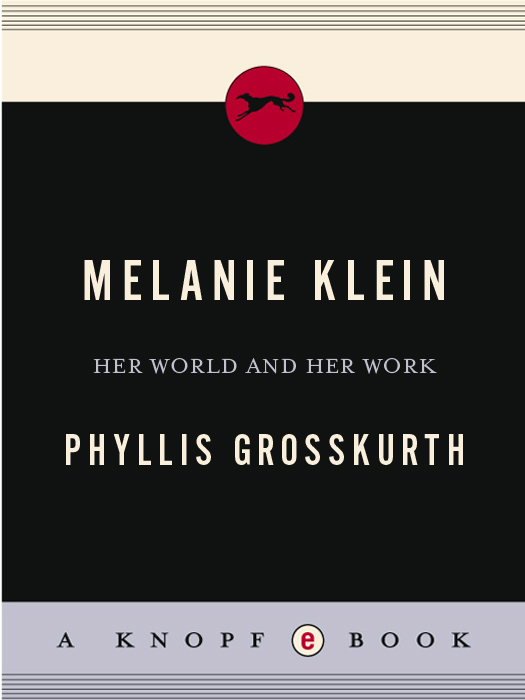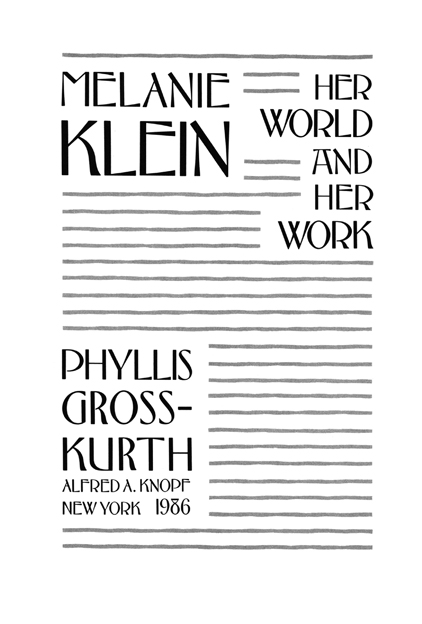S IGMUND F REUD , Lines of Advance in Psycho-Analytic Therapy (1919).
Foreword
It has generally been assumed that Melanie Klein left little documentation about her life. In actuality there is an abundance of material, largely in the keeping of the Melanie Klein Trust. Inevitably I have encountered the frustration of penetrating the total silence concerning certain episodes and relationships, but from the wealth of evidence that is available I think we are now in a position to evaluate the connection between the woman and her work. The Melanie Klein Trust has deposited the Klein papers in the Wellcome Institute for the History of Medicine, where other scholars will be able to examine and evaluate them for themselves.
I could not have embarked upon this book without the theoretical and biographical foundations laid by Dr. Hanna Segal in Introduction to the Work of Melanie Klein (1978) and in Klein (Fontana Modern Masters Series, 1979). Edna OShaughnessys Notes to the Collected Works have been invaluable. Dr. Segal and the Melanie Klein Trust have given me unrestricted access to Kleins papers, and in innumerable ways have endeavored to assist me in my task. Kleins son, Eric Clyne, has allowed me to examine family papers, has suggested possible sources of information, and has patiently answered persistent questions. Fortunately, he has a phenomenal memory for what he describes as trivia; but what might seem trivial to him is invaluable to the biographer. His relatives have also been extremely helpful. Scattered to the far ends of the earth by pogrom, war, and revolution, their history represents a miniature Diaspora.
I am also greatly indebted to the members of the British Psycho-Analytical Society. Dozens of analysts have given me hours of their time, and I shall take pleasure in acknowledging them by name, in addition to the many other people who have assisted me, at the end of the book. Dr. Dennis Duncan, former Archivist of the British Institute of Psycho-Analysis, kindly allowed me to use its archives. Pearl King, former President of the British Psycho-Analytical Society and its present Archivist, has guided me through its history and given me generous permission to quote from unpublished material. Both John Jarrett, Administrator of the Institute, and Jill Duncan, its Librarian, have given me cheerful and unstinting help.
A number of people have been involved in the translation of German material, but the great bulk has been the work of Bruni Schling, whose sensitive translating has been invaluable, particularly in the chapters on Melanie Kleins early years.
I wish also to thank my students in Womens Studies at New College, University of Toronto, for discussion and encouragement.
No biography is definitive. Other scholars will correct and elaborate my interpretation of Melanie Klein. This book would have been enriched if I had been given access to the correspondence between Freud and Karl Abraham and Freud and Joan Riviere, which is deposited in the Library of Congress with an embargo until 2000; but this was denied to me by Dr. K. R. Eissler, then Secretary of the Sigmund Freud Archives. His attitude has been a dramatic exception to the cooperation I have received elsewhere.
A biographer can create only an approximate composite of a sentient being; and if the woman who has emerged is not the one some people remember, I ask the reader to ponder on the fact that each of us presents multiple personae in our commerce with others during the course of our lives.
I have ended the book with Melanie Kleins death in 1960, but the story by no means ends there. Elizabeth Bott Spillius has written on the elaborations in Kleinian thought within the British Society (Some Developments from the Work of Melanie Klein, International Journal of Psycho-Analysis [1983] 64, Part 3, 32132). Many books remain to be written on the dissemination and development of Kleinian ideas throughout the world.
Few professional women have been subjected to as much distilled malice and rumor accepted as fact as Klein endured both during her lifetime and since her death. I hope that I have in some measure presented a more balanced evaluation.
P HYLLIS G ROSSKURTH
Toronto, 1985
CHAPTER ONE
Early Memories
Melanie Klein was the stuff of which myths are made. Seemingly secretive about her past, indomitably self-assured about her present, her very being aroused speculation and suspicion. In a sense, she sought this enigmatic role; in another, it was thrust upon her by enemies and friends alike. Her enemieswho were numerous during her lifetime and afterspread scurrilous gossip about her. Her supporters, tenderly protective, assured the world that she was extremely discreet about her private life. She was more transparent than any of them realized, but in the course of her turbulent passage she learned the caution necessary to safeguard her work, and for most of her career the woman and her work were indistinguishable.


